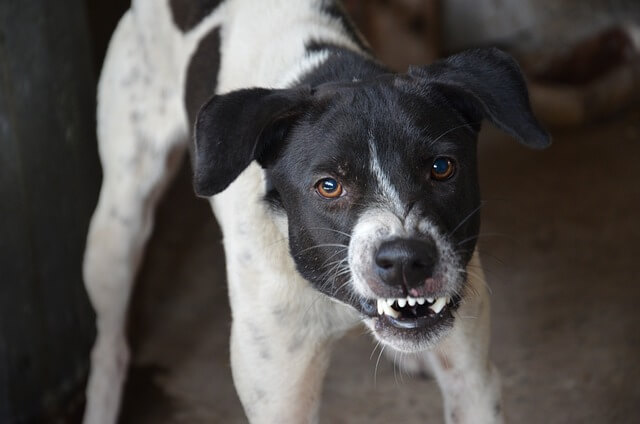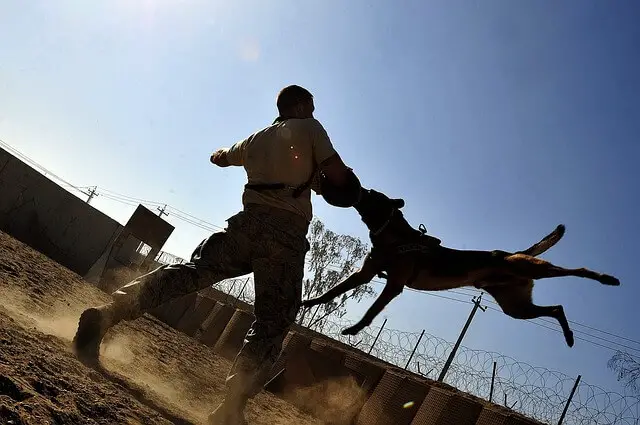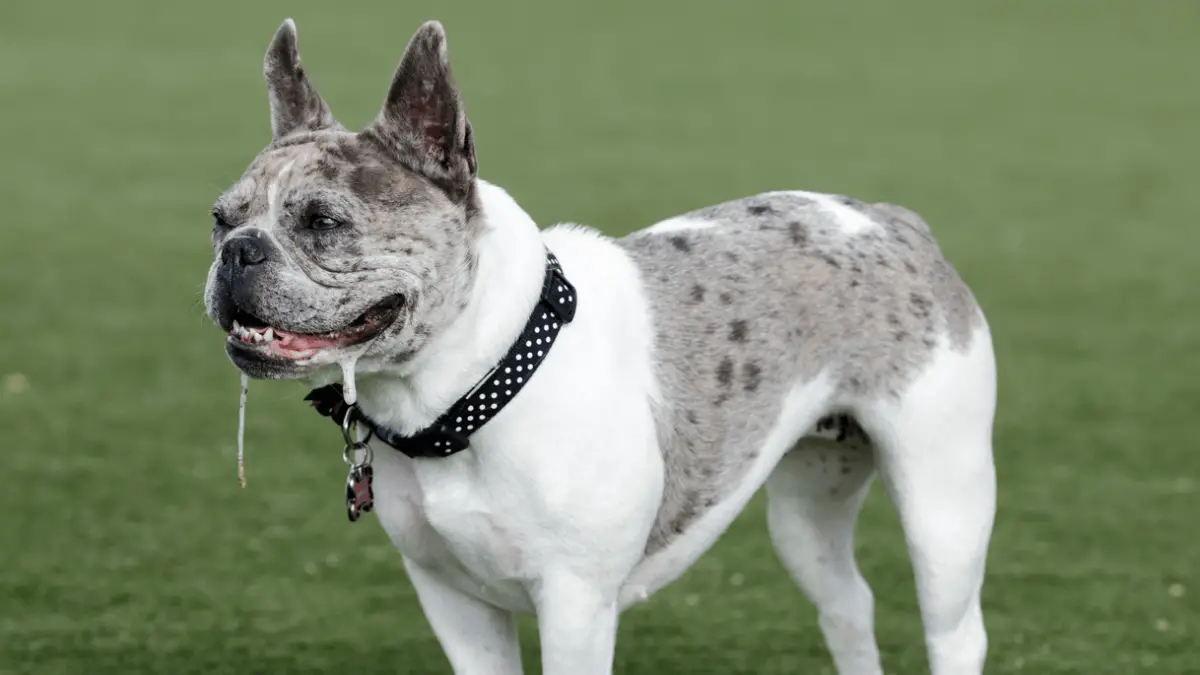7 Reasons For Dog Foaming at Mouth & How To Help Your Dog
22.05.2021.
When dog owners notice their dog foaming at the mouth, their mind instantly jumps to one thing - rabies. While rabies might be the culprit, the chances for that are very slim. Most of us go straight to theatrical dangers and pictures we have in our minds of dogs foaming at the mouth, but the truth is, dogs can foam for many different reasons. Before we go into the most common reasons for foaming, we need to understand the basic difference between foaming and drooling.
Foaming vs. drooling
The first thing we need to know is that foaming is a by-product of drooling. The main difference is in the amount of air in the dog’s saliva. The air movement inside the dog’s mouth will cause the drool to froth and look like something you might see in a bubble bath. Drooling is mainly seen as a long teardrop coming from the dog’s mouth, and foaming is white foam with or without the long teardrop drool.
Common foaming at the mouth reasons
Like we already said, there are many reasons your dog might foam at the mouth. Not all of them are serious medical issues you should immediately worry about. However, there are other signs you should look for in your dog, and they might help you determine the exact reason your dog is foaming at the mouth. Here are some of the most common reasons;
1. Nausea
Dogs that are nauseated might start foaming at the mouth. They will feel sick, and that will cause hypersalivation. Another thing dogs do when they are nauseated is panting. If you combine these two things, you might end up with a dog that is foaming at the mouth. They will produce a lot of salivae, and panting will cause a lot of air movement. That is the perfect combination for creating a thick white foam around the dog’s mouth. You can notice this type of foaming in dogs with gastrointestinal upsets and during car rides.
2. Stress and anxiety
Another common reason dogs can foam at the mouth is stress. This is actually one of the most common reasons (if not the most common) dogs foam. The stress will cause hypersalivation, and one of the ways dogs deal with stress is by panting heavily. Again, we have the perfect combination of air and hypersalivation that can cause the dog’s saliva to froth. You can notice this happening in stress-inducing situations like vet visits or owners leaving their dogs at home. One of the possible reasons can be separation anxiety, and you can read more about this behavioral issue here - Separation anxiety in dogs.
3. Rabies
While this is something most dog owner’s minds might jump to, rabies is rarely the reason dogs foam at the mouth. The good news is - all dogs must be vaccinated against this disease, and it is generally very well kept under control. However, if you notice an unfamiliar dog acting weirdly and foaming at the mouth, it would be best to avoid them. Hollywood dog movies like “Cujo” or “Old Yeller” contributed to the picture some of us have of rabid dogs.
We might think of aggressive behavior and a dog foaming at the mouth. However, rabies is rarely the culprit of foaming, and this disease is well-controlled. Nevertheless, if you think your dog might have been in contact with a rabid animal, it is best to call your vet and let them know about it.

4. Dental disease
Pain and dental inflammation will cause hypersalivation and panting. As we established, this is the formula for creating foam in the dog’s mouth. However, there will be other signs accompanying this issue. The bacteria buildup will cause your dog bad breath, so it is pretty hard to miss something like that.
The odor is quite unpleasant, and you should call your vet and schedule a check-up and a detailed cleaning for your dog. You might notice other symptoms as well. Things like blood in your dog’s water bowl, panting, loss of appetite, and decreased activity might point to physical pain and discomfort.
5. Training
Training and physical activity can cause your dog to start foaming at the mouth. A small amount of foam is entirely normal, but you have to make sure you are not over-exerting your dog. If you notice a suspiciously large amount of foam, your dog might need a break and probably a lot of water.
If the foam is thick and white, your dog might be on the road to dehydration. You should stop the exercise and allow your dog to rest and drink water. Dehydration in dogs is extremely dangerous, and you can read more about it here - Dehydration in dogs. As soon as your dog rests, the hypersalivation and panting should stop, and your dog will stop foaming at the mouth.

6. Seizures
Another possible reason your dog might foam at the mouth is seizures. If your dog has seizures, you are probably aware of this issue. However, if you are experiencing it for the first time, it can be very nerve-wracking and scary. Seizures are a common symptom of different types of poisoning.
The first thing you should do is make sure your dog hasn’t ingested toxic substances. When you determine that is not the case, you should call your vet and let them know your dog had a neurological episode and you need to take them to the vet clinic. You can read more about this problem here - Seizures in dogs.
7. Poisoning
The scariest reason for foaming at the mouth is poisoning. Dogs that ingest toxic things will start panting and drooling, which will create a thick foam around their mouths. If you suspect your dog is poisoned, you should rush to the pet ER or call the Pet Poison Helpline (855) 764 - 7661. Toxic substances have a strong taste, and dogs with an unpleasant taste in their mouths will start producing a lot of saliva. The second thing that will happen is your dog will begin panting because they are nauseated. We have again achieved the perfect foam combination.
If something like that happens, don’t lose any time and take your dog as soon as possible to the ER. Try to find out what they ingested, and make sure you inform the vet about anything that happened, what you suspect your dog ingested, and what symptoms you have noticed so far.
RELATED: 7 Ways To Treat Poisoned Dog At Home
What does a dog foaming at the mouth look like?
A dog foaming at the mouth will have bubbly saliva or foam around their mouth and lips. This foam may vary in thickness and amount, depending on the main underlying issue. This will be pretty easy to notice since this foam will differ from the drool you most often see in dogs.
What can I do to help my dog stop foaming at the mouth?
The first thing you should do if your dog is foaming at the mouth is to find and understand the main cause. Once you understand why this is happening, you can address the problem and help solve it. In most cases, you will have to include your vet, who will be able to find a proper treatment for your dog.
Whatever is bothering your dog, you should always consult with your vet, as they have much more experience and will easily help your dog, especially if you are not an experienced dog owner.

How can I prevent mouth foaming?
To prevent mouth foaming, you will have to always provide good care for your dog, and ensure that he is living the best life possible. To do that, it is advisable that you regularly take your dog to the vet, for a quick check-up, and only by doing so you can ensure that nothing is bothering him.
In case some underlying issue is bothering your dog, with regular checkups, you will be able to find it right away and start with treatment immediately. This will ensure that your dog recovers in no time.
Call the vet right away if your dog is foaming at the mouth
Whenever you notice strange behavior or suspicious symptoms your dog is exhibiting, you should contact your vet for advice. Those symptoms can differ and some of them could include
- vomiting
- diarrhea
- lethargy
- difficulty breathing
- collapsing
These are just some of the possible symptoms your dog could exhibit if some underlying issue is bothering him, and whenever you notice that your dog is not feeling good, you can seek advice from your vet. That way, your dog could receive proper care and treatment if necessary.
Is a dog foaming at the mouth dangerous?
Foaming at the mouth can be a sign of various health problems, and it can be pretty hard to tell if this foaming is dangerous or not. It will mostly depend on the issue that is bothering your dog. Either way, you should not postpone going to the vet and hoping for the best results.
Some foaming can be due to mild problems that will not cause much harm to your dog, but also foaming could be a byproduct of a serious health issue such as rabies, poisoning, or even seizure, and in these situations, foaming will be extremely dangerous.
If you notice constant foaming at your dog, you should immediately seek help in order to help your dog.
World Dog Finder team







Share